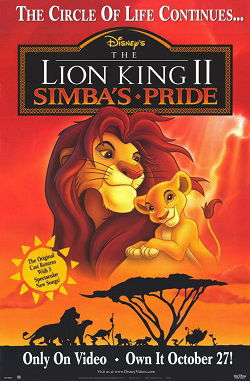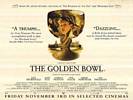“Perplexing Period Piece”

| None | Light | Moderate | Heavy | |
|---|---|---|---|---|
| Language | ||||
| Violence | ||||
| Sex | ||||
| Nudity |
What You Need To Know:
THE GOLDEN BOWL is missing some important exposition between the characters that may be in the famous novel by Henry James. The story jumps timeframes too quickly at times, which leaves the characters’ development perplexing and eventually unbelievable. For example, the movie does not show much of Amerigo and Charlotte’s previous love affair, or of Maggie and Amerigo pre-engagement relationship, so viewers never see why these two women are willing to go to such lengths to hold onto this fellow, beyond his handsome features and his exotic background. The movie includes a passionate scene between the two adulterous lovers in a hotel room
Content:
(B, L, V, SS, N, A, D, M) Mild moral worldview about two married couples, including a rich father & his sheltered daughter, & an adulterous affair between their spouses that is painfully resolved, even though the mother-in-law, a younger woman, must lie to herself to go back to her husband; several mild obscenities & profanities; mild violence such as slapping & shoving people away; briefly depicted adultery during one afternoon of passion, but rather discreet for an R-rated movie; brief male nudity & female in underwear & a loosened dress; alcohol use; smoking; and, lying, manipulation & neglecting one’s spouse.
More Detail:
Two years later, Maggie, Amerigo and their new baby seem to be happy living in Adam’s fabulous English estate in the country. Maggie feels, however, that she’s abandoned her father. So, she invites Charlotte, who’s played by Uma Thurman, to keep her father company while she and Amerigo use Adam’s money to refurbish Amerigo’s family estate. Charlotte, who’s still passionately in love with Amerigo, eventually marries Adam, figuring that she can then insinuate herself into Amerigo’s life once again. She does just that, which leads to an affair and, ultimately, some painful revelations that Maggie and Adam must resolve.
The point of this story may be missed on many viewers, including this one. THE GOLDEN BOWL seems to be missing some important exposition between the characters that may be in the famous novel by Henry James. The story jumps timeframes too quickly at times, which leaves the characters’ development perplexing, somewhat uninvolving and eventually unbelievable. For example, the movie does not show much of Amerigo and Charlotte’s previous love affair, or of Maggie and Amerigo pre-engagement relationship, so viewers never really see why these two women are willing to go to such lengths to hold onto this fellow, beyond his handsome features and his exotic background. Also, in the movie’s final resolution, it seems as if Charlotte must lie to both herself and Maggie in order return to her husband, who decides he must go back to America to oversee a huge museum he is building for his magnificent art collection. The filmmakers fail to provide adequate motivation for this development. They also don’t really explain how Maggie and Adam are able to tame the emotional Charlotte. They seem to mistake obscurity for subtlety, a fatal mistake to such an intricate, literary drama as this.
Thus, THE GOLDEN BOWL does not have the dramatic punch or cohesion and solid characterization that THE HOUSE OF MIRTH, one of last year’s best period dramas, had. It does, however, contain a moral worldview. Amerigo eventually realizes his mistake. Regretting his affair with Charlotte, he tries to pour cold water on her passions, but it takes Maggie and Adam’s efforts to resolve the problem. For his part, Adam suffers quietly, not wishing to reveal the truth about Maggie’s husband’s affair with his wife, Charlotte, to his daughter Maggie, whom he loves and does not want to hurt. Regrettably, this means that Maggie finds out the shocking truth on her own. It also means that Maggie’s relationship with Amerigo and Adam’s relationship with Charlotte will always contain a flaw, like the flaw in the golden antique bowl which Maggie and Charlotte admire. The bowl becomes an important plot device as well as an apt metaphor for the flaws that all human beings share, not just the fictional ones in this story.


 - Content:
- Content: 

